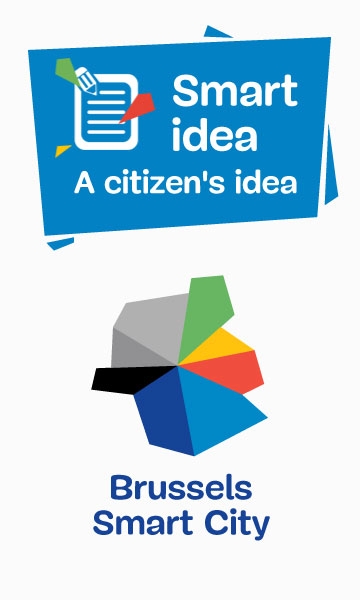This smartcity.brussels portal gives a voice to its visitors, allowing them to send to the Brussels-Capital Region suggestions on how to create a regional smart city. One year since the portal launch, an initial review of these “smart” suggestions shows that attention is mainly focused on solutions in the mobility field and mobile uses.
Launched online on 3 June 2015 on the occasion of the Brussels Smart City Summit, the smartcity.brussels portal has amassed an increasing amount of information on the topic of smart cities and, in particular, on the strategy of the Brussels-Capital Region and on the measures Brussels is taking in the area of the smart city.
Mobility is inspiring the citizens of the smart city
The smart city portal for the Brussels-Capital Region stresses interaction with its visitors by offering them three modes of participation: Send “smart” suggestions to the Brussels Region, vote on these suggestions (as well as on the Region’s projects) or answer surveys (this Spring 2016:
How can Open Data be most useful?).
In this respect, statistics on the suggestions in their own way throw a spotlight on the concerns and interests of the citizens as regards the smart city.
- Mobility and mobile uses are the primary topic inspiring the suggestions received on the portal: 35% of the suggestions are linked to these issues. Smart services and suggestions on the “social” topic come next, at respectively 25% and 18% of the suggestions.
- The citizens of the Brussels Region are the most inspired at making suggestions (73%), followed by Walloons (13%) and Flemish (8%). It should be noted that 5% of the suggestions come from Europe and 3% from the rest of the world.
The top trio of favourite citizen suggestions
Visitors to the portal can vote for the suggestions published on it, by awarding them from 1 to 5 hearts. These votes give the following top 3:
Citizen participation, the cornerstone of the smart city
Citizen participation is the cornerstone of the smart city. No smart city - or any city for that matter - exists without its inhabitants. That is why visitors’ suggestions on the smart city portal will be included in a forthcoming report intended for the regional government.
Moreover, the Secretary of State in charge of the digital transition, Bianca Debaets, and the Brussels Regional Informatics Centre, have invited citizens to the
Brussels Smart City Event, 3 May 2016, on the topic: “The digital solutions for the Brussels-Capital Region. ” It is on this occasion that
Professor Pieter Ballon has been designated as smart city ambassador of the Brussels-Capital Region.
